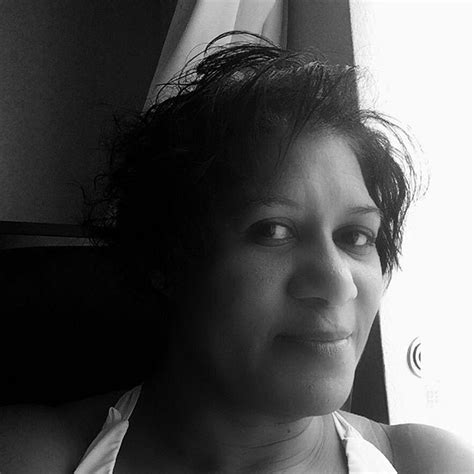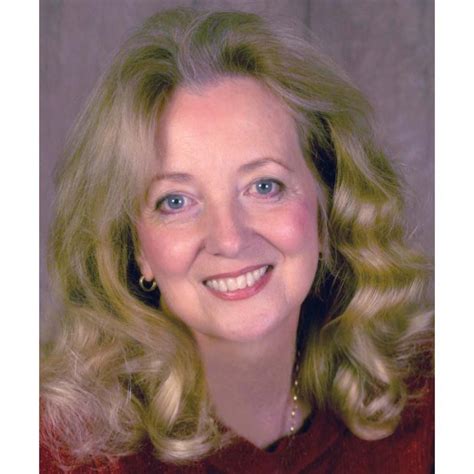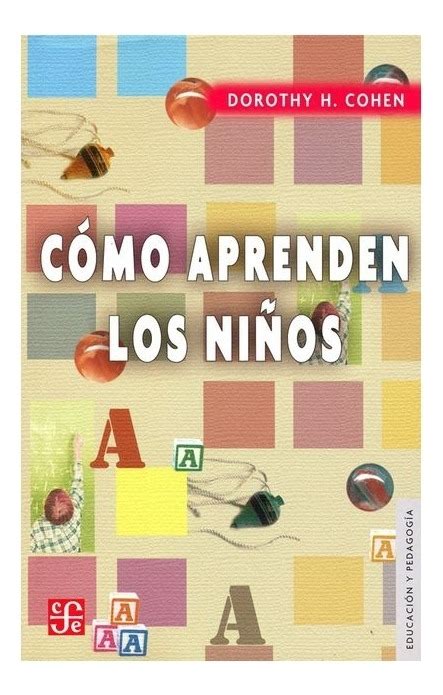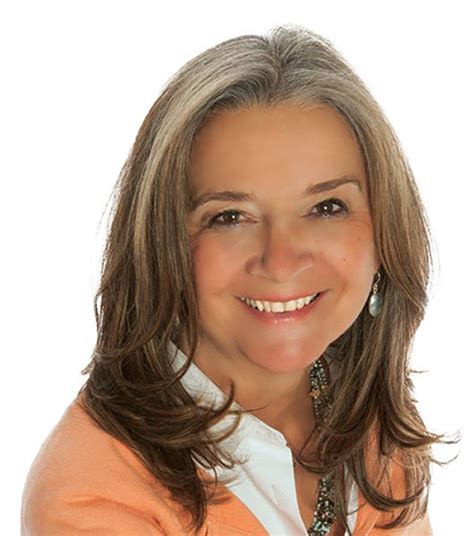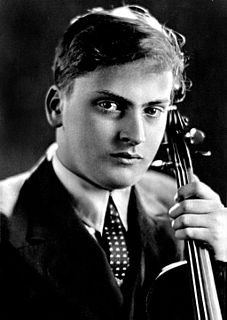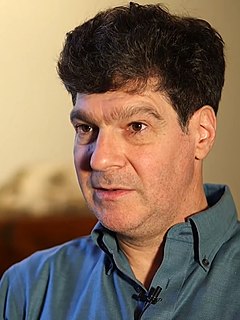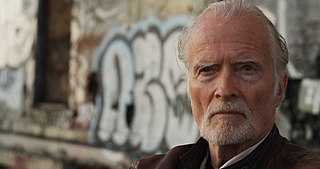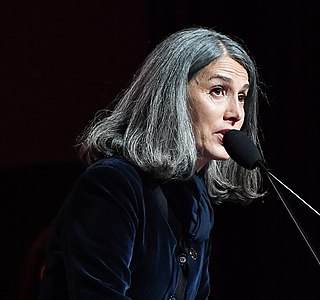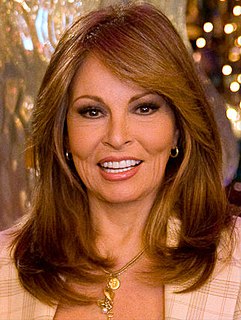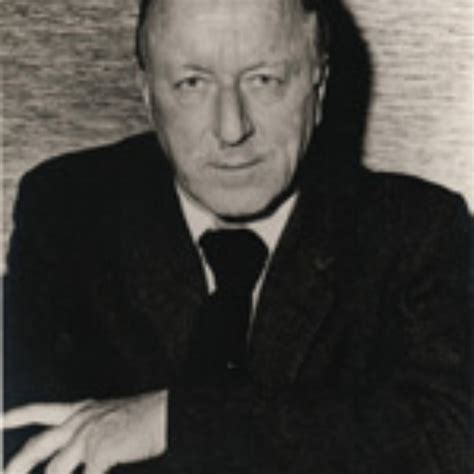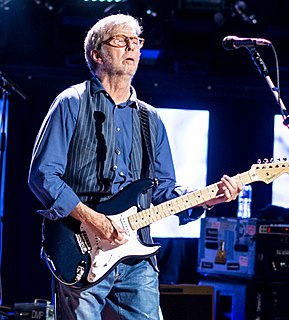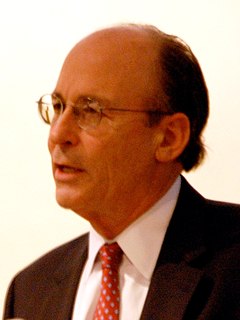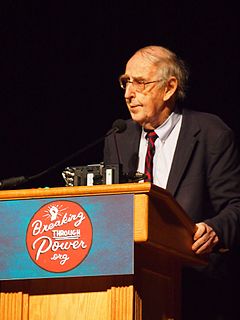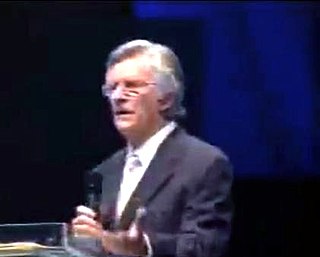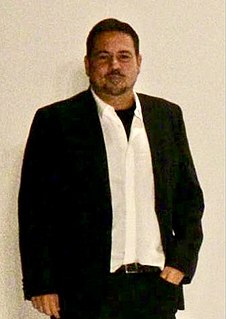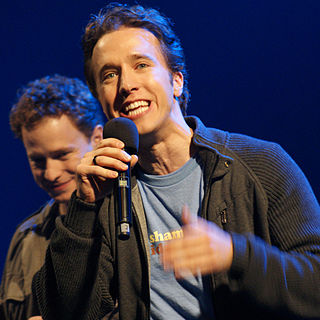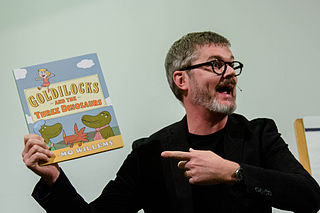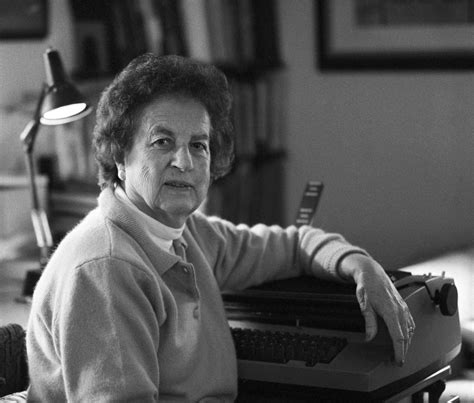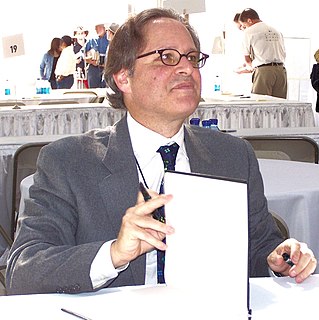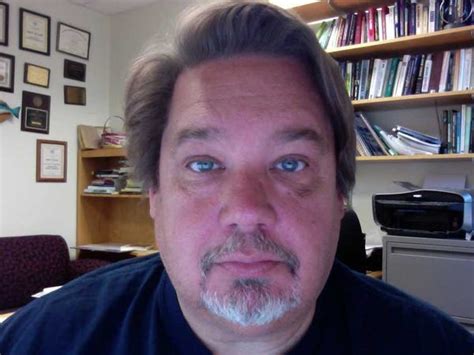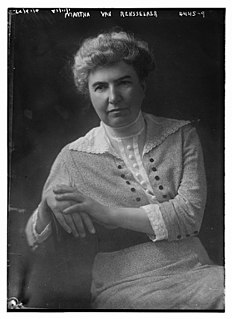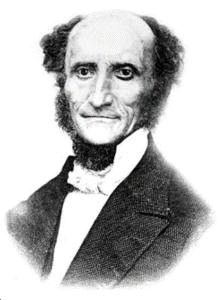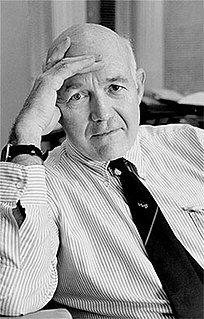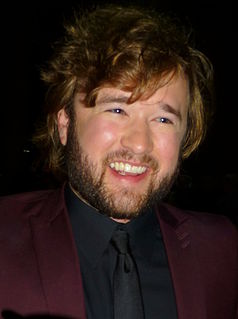Top 310 Curriculum Quotes & Sayings - Page 5
Explore popular Curriculum quotes.
Last updated on April 21, 2025.
You could be a poet, an artist, a comedian - if you're in the culture of innovation then you embrace those who do and you're going to protect the science curriculum in the classroom because you understand the meaning and the value of it. And science discoveries don't scare you. You say, "Give me more science", not less. "Give me more technology", not less.
Important element is deeply understanding our curriculum. Most teachers know what they're going to cover this week or this term. Few of us can specify precisely what students should know, understand, and be able to do as a result of any particular learning experience or set of learning experiences. Without that specificity, alignment between content, assessment, and instruction is weak.
My colleague Sen. Rick Santorum, Pennsylvania Republican, erroneously suggested that I support the teaching of intelligent design as an alternative to biological evolution. That simply is not true. ... Unlike biological evolution, intelligent design is not a genuine scientific theory and, therefore, has no place in the curriculum of our nation's public school science classes.
What do teachers and curriculum directors mean by 'value' reading? A look at the practice of most schools suggests that when a school 'values' reading what it really means is that the school intensely focuses on raising state-mandated reading test scores- the kind of reading our students will rarely, if ever, do in adulthood.
In an age when schools are facing significant budgetary restraints, there is a greater need than ever to make chess available to as many students as possible. We've assembled the very best in chess education to develop a complete chess curriculum - K through 12. We've designed a program that encourages creativity, instills self-discipline and offers hope and a feeling of accomplishment to millions of children.
The child to be concerned about is the one who is actively unhappy, [in school].... In the long run, a child's emotional development has a far greater impact on his life than his school performance or the curriculum's richness, so it is wise to do everything possible to change a situation in which a child is suffering excessively.
I taught public school for 26 years, but I just can't do it anymore. For years I asked the school board to let me teach a curriculum that doesn't hurt kids, but they always had other fish to fry. If you hear of a job where I don't have to hurt kids to make a living, let me know. The truth is that schools don't really teach anything, but blind obedience.
As for journalism education, there are some terrifically exciting things going on in some schools. Others are struggling to adapt. Curriculum changes can be slow, by design. Yet there are arguably more dynamic minds, old and young, gravitating to teaching than ever before, both on the research and scholarly side and on the side of what is called "professional practice," a term that usually refers to experienced journalists without Ph.D's moving to the academy.
I'm not entirely sure why I write about family, but I do know that it hasn't stopped interesting me. You meet and leave other people at different stages of your evolution, whereas family is made up of people who are constant links in your life, who know you over the course of time and have your complete curriculum vitae in their heads.
Why is compassion not part of our established curriculum, an inherent part of our education? Compassion, awe, wonder, curiosity, exaltation, humility - these are the very foundation of any real civilization, no longer the prerogatives, the preserves of any one church, but belonging to everyone, every child in every home, in every school.
All schools should teach children basic cooking skills. Every school should be able to buy sustainable, good quality food wherever possible from local sources. Every school should include food-growing in the curriculum. For some, that will mean twinning with willing farms. For others, it will mean literally building their own small farms.
There are obvious places in which government can narrow the chasm between haves and have-nots. One is the public schools, which have been seen as the great leveler, the authentic melting pot. That, today, is nonsense. In his scathing study of the nation's public school system entitled "Savage Inequalities," Jonathan Kozol made manifest the truth: that we have a system that discriminates against the poor in everything from class size to curriculum.
Evergreen is arguably the most radical college in the country - and while it does lean far to the left in a political sense, it is the school's pedagogical structure to which I refer. Rather than placing students in many separate classes, most of our curriculum is integrated into full-time programs that may run the entire academic year.
I don't think film schools are mentoring kids. I think they just send them through the curriculum, so now you know how to hold a camera, how to use a Dx3 menu. You can learn that in five minutes from somebody that doesn't even know anything. But what do you know if you haven't read anything - studied art and studied literature - what do you have to contribute?
Dalai Lama has made new opportunities for women that they never had in Tibet, introduced science into the monks' curriculum and had Tibetan students in exile take their classes in English after the age of ten so that they will know more about the outside world. But one of the great things he's done is to bring all the Tibetan groups together in exile, as perhaps they couldn't have been when they weren't in exile and they weren't under such pressure.
I think that the Bible as literature should be a compulsory part of the national curriculum.. you can't understand English literature and culture without it. But insofar as theology studies the nature of the divine, it will earn the right to be taken seriously when it provides the slightest, smallest smidgen of a reason for believing in the existence of the divine. Meanwhile, we should devote as much time to studying serious theology as we devote to studying serious fairies and serious unicorns.
I have not seen that standardised tests make the profession less attractive, though some principals respond to them in a way that drives the best teachers out of their schools (by over-emphasising test prep in the school curriculum for example). On the other hand, great teachers want benchmarks to measure progress and tests can help with that.
A Christian boy or girl can learn mathematics, for example, from a teacher who is not a Christian; and truth is truth however learned. But while truth is truth however learned, the bearing of truth, the meaning of truth, the purpose of truth, even in the sphere of mathematics, seem entirely different to the Christian from that which they seem to the non-Christian; and that is why a truly Christian education is possible only when Christian conviction underlies not a part but all, of the curriculum of the school.
When I was energy and climate change secretary I sat around a cabinet table with Gove, and he couldn't help playing to the Tory climate-sceptic audience. As education secretary, he tried to ban climate change from the geography curriculum. After an angry exchange of letters with me, he eventually backed down.
Learning should be engaging. Testing should not be the be all and end all. All students should have a broad curriculum that includes the arts and enrichment. Students should have opportunities to work in teams and engage in project-based learning. And student and family well-being should be front and center.
My father came from a country called Bolivia. He was of Spanish descent. I never went to Bolivia until I was 60 years old, but apparently when he was 17, he had already planned his entire academic curriculum so that he could graduate high school and enter college in the United States. That's how much he wanted to come to this country.
While still sixteen I am put in charge of a class of forty children who are two, three or four years younger than I. I fall in love with them. They are my possession, my mob whose forty minds, under my flashy and domineering control, are to become one, a mind unsullied by errors, unmarked by blots, contaminated by misplaced originalities outside the curriculum, and as full of facts as a pomegranate seed.
I am absolutely sick unto death of hearing people say - they all say this; it must be Item One on the curriculum in Trend College - "I just hate to talk to a machine!" They say this as though it is a major philosophical position, as opposed to a description of a minor neurosis. My feeling is, if you have a problem like this, you shouldn't go around trumpeting it; you should stay home and practice talking to a machine you can feel comfortable with, such as your Water Pik, until you are ready to assume your place in modern society.
Most teachers have little control over school policy or curriculum or choice of texts or special placement of students, but most have a great deal of autonomy inside the classroom. To a degree shared by only a few other occupations, such as police work, public education rests precariously on the skill and virtue of the people at the bottom of the institutional pyramid.
Is that why you came?' 'No, I came because I simply can't get enough of people looking down their noses at me. The girls at school are getting frightfully lax about it.' 'Are they? How remiss of them. We're taught from the cradle how to look down our noses, you know, we rich sons of bitches. Perhaps Westcliffe's curriculum is a tad too liberal these days.
Everything you go through as a Christian is a training exercise behind which God has a divine purpose. He did not save you so that you could cruise into paradise on a luxury liner; He saved
you to prepare you to be of use in His kingdom. The moment you were born again, He enrolled you in His school of suffering. And every affliction, every trial, is another lesson in the curriculum.
I think evolution should be taught as an accepted principle. I say that also as the daughter of a school teacher, a science teacher, who has instilled in me a respect for science. I think it should be taught in our schools. I won't ever deny that I see the hand of God in this beautiful creation that is earth. But - that is not a part of state policy or a local curriculum in a school district. Science should be taught in science class.
We're in English class, which for most of us is an excruciating exercise in staying awake through the great classics of literature. These works - groundbreaking, incendiary, timeless - have been pureed by the curriculum monsters into a digestible pabulum of themes and factoids we can spew back on a test. Scoring well on tests is the sort of happy thing that gets the school district the greenbacks they crave. Understanding and appreciating the material are secondary.
The thing about Parsons compared to the other schools is that it really teaches you how to be a designer, whereas some of the other schools teach you to sketch or teach you the technical skills. But the curriculum at Parsons when I was there was how do you put a collection together, as well as all the technical stuff. It's the best training.
Differentiated Instruction is a teaching philosophy based on the premise that teachers should adapt instruction to student differences. Rather than marching students through the curriculum lockstep, teachers should modify their instruction to meet students' varying readiness levels, learning preferences, and interests. Therefore, the teacher proactively plans a variety of ways to 'get it' and express learning.
Peace is a culture that we create by putting it in the curriculum for young people, through creating this next generation where young people get a chance to go across borders, across cultures, to learn more about each other's life, to create a global community, learn about opportunities for helping others. It's investing in peace and tolerance training, ending the gap between rich and poor.
Educators, long disturbed by schoolchildren's lagging scores in math and reading, are realizing there is a different and more alarming deficiency: emotional literacy. And while laudable efforts are being made to raise academic standards, this new and troubling deficiency is not being addressed in the standard school curriculum. As one Brooklyn teacher put it, the present emphasis in schools suggests that "we care more about how well schoolchildren can read and write than whether they'll be alive next week."
There is a form of poetic and esthetic and moral genius necessary to make philosophical issues truly incandesce for students, and even though I indeed had some world-class professors myself when I went through the curriculum, I rarely saw such gnosic or concretist/poetic passion among them. I am not speaking of broad histrionics or melodramatic delivery, but rather a moral investment of concern, of loving delight and pathos in exposing one's consciousness to the full horrific and magnificent implications of the materials.
A picture book is a motorcycle: small, loud, fun, and zippy.
An easy reader is a chartered bus: obliged to carry a rather dull passenger roster of sanctioned curriculum, plus the baggage of an approved, limited vocabulary. The trick is to design your chartered bus to be as cool and sexy as a motorcycle.
The way they taught history in schools was not appealing. They stressed wars and dates. They left the people out. I was attracted to history by the need to know about the people. In China, I went to a British school, and we just learned about kings and queens. Back in America, I had the regular social studies curriculum.
Through your love for each other, through learning the art of making one person happy, you learn to express your love for the whole of humanity and all beings. Please help us develop the curriculum for the Institute for the Happiness of One Person. Don't wait until we open the school. You can begin practicing right away.
I am not against standardized tests. There are tests and tests and tests, and, to simplify, the ones I favor are criterion-referenced tests of skills, aligned with the curriculum. Social and emotional skills are important but skills are too. I find it heartbreaking that this is so often seen as an either-or choice. To get to the richness of studying literature, for example, you must first be an adept and confident reader. Whether you are is something a good test can measure.
After the privatization of public education everyone will get to choose a school that reflects only your own social values. No need for the competition of ideas or critical thinking. So the curriculum will be up to the school to determine. I am certain that the growing percentage of us who have McJobs will welcome this opportunity to spend a large portion of our income on education and choose an ideology at the same time.
Home economics should find its way into the curriculum of every school because the scientific study of a problem pertaining to food, shelter or clothing... raises manual labor that might be drudgery to the plane of intelligent effort that is always self-respecting...Home economics is not one department, in the sense in which dairying or entomology or soils is a department. It is not a single speciality... Many technical and educational departments will grow out of it as time goes on.
I think at a place like Harvard, our experience, I was involved with, at various stages, in trying to implement a new general education curriculum, our experience was that Harvard's all about specialization, that's not just true of the professori, it's also true of a lot of the undergraduates, too, and they come, they kind of know what they want to do, they select it because they have a strong aptitude for something in particular.
After graduate school, I joined Johnson & Wales University in Rhode Island as an assistant professor, but I continued to program in addition to teaching and working on research. I built a program that crawled job boards to determine which skills employers value, which helped Johnson & Wales explore ways to improve its curriculum.
We the undersigned, intend to establish an instruction and training institution which differs from the common elementary schools principally in that it will embrace, outside of (in addition to) the general and elementary curriculum, all branches of the classical high school, which are necessary for a true Christian and scientific education, such as: Religion, the Latin, Greek, Hebrew, German, French and English languages; History, Geography, Mathematics, Physics, natural history, Introduction to Philosophy, Music, and Drawing.
Every person and every team will be tested on their journey. It is part of the curriculum of life. It's just like riding a bicycle. In the beginning you're going to fall off and get knocked down but the important thing is to get back on, stay strong, and after a while once you master it you'll ride with the confidence of a champion.
In some suburban schools, the curriculum is chock-full of rigorous A.P. courses and the parking lot glitters with pricey SUVs, but one doesn't have to look hard to find students who are starving themselves, cutting themselves, or medicating themselves, as well students who are taking out their frustrations on those who sit lower on the social food chain.
Parents teach in the toughest school in the word: The School for Making People. You are the board of education, the principal, theclassroom teacher, and the janitor, all rolled into two. . . . There are few schools to train you for your job, and there is no general agreement on the curriculum. . . . You are on duty, or at least on call, 24 hours a day, 365 days a year, for at least 18 years for each child you have. Besides that, you have to contend with an administration that has two leaders or bosses, whichever the case may be.
My mom teaches sixth grade and also taught first grade at one point. She's into dressing up and costumes and designing her own curriculum that way. She stayed home for about eight years with me and my sister when we were young before going back to teaching, so we had a lot of time with her. She taught us to read really early.


